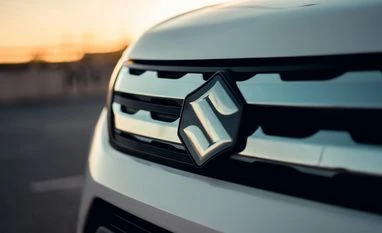Ahead of the launch of its first electric vehicle, midsize SUV named Concept eVX, Maruti Suzuki India is planning to set up around 25,000 EV charging stations, according to a report by The Economic Times.
The automaker aims to leverage its network of over 5,100 service centres across 2,300 cities and is in discussions with oil marketing firms and energy companies to build a robust charging infrastructure. The lack of such an ecosystem has been a major hurdle in the country’s transition to electric vehicles, the report said.
The news daily quoted a source as saying, “They (Maruti) have started surveying their dealer workshops for charging points. The plan is to have at least one dedicated bay and two charge points at its service centres. The company has already started training service mechanics in Bengaluru.”
According to insiders at oil marketing companies, the automaker has approached them to reserve space for EV charging and service stations at their retail locations. Maruti Suzuki Managing Director Hisashi Takeuchi said last week, “We will come up with a range of solutions for our EV customers to remove their concerns about owning an EV.”
“We will use the strength of our network to give confidence to the customers for after-sale support,” he had said on the sidelines of the 64th Annual Convention of the Society of Indian Automobile Manufacturers (SIAM) in New Delhi.
Maruti plans to price the eVX between Rs 20-25 lakh and aims to sell 3,000 units within the first three months of its release. The electric SUV will be manufactured at the Gujarat plant and sold through the premium Nexa outlets, the report said.
The eVX marks the first of six electric vehicles Maruti intends to roll out over the next 6-7 years.
More From This Section
This entry comes as India’s electric vehicle market faces challenges, with August EV sales dropping 10 per cent year-on-year to 6,335 units, according to data from the Vahan portal, as mentioned by the report.
Factors like limited charging infrastructure, range anxiety, and high upfront costs are seen as contributing to this decline. It’s common for automakers to establish their charging infrastructure ahead of a major EV launch, often expanding it through partnerships. For instance, EV market leader Tata Motors, which offers five electric models, has set up 5,600 public charging stations, while Tata Power Renewable Energy has installed over 101,924 home charging points, the report further said.
)